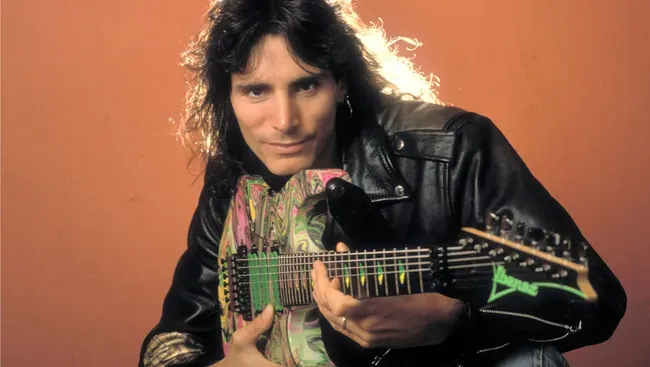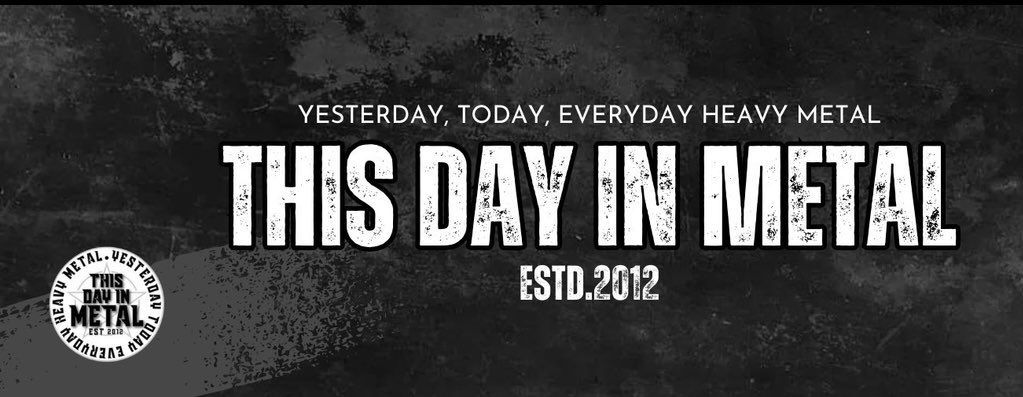WHY THE HATE?: Djent
During the mid to late 1990's, a new variation of metal began to form out of Sweden. Helmed by the

During the mid to late 1990's, a new variation of metal began to form out of Sweden. Helmed by the legendary Swedish act Meshuggah, and their famously heavy fourth album Nothing. An infusion of thrash, groove, a prominence of 8-string guitars and complex polyrhythms created by Fredrik Thordendal. Which many cite his playing as the blueprint for the band's sound, the album would put Meshuggah on the map as a new, technical and brutal sound that would go on to be known as djent. Bands like Animals as Leaders, Periphery, and Vildhjarta would take inspiration from the djent creators and help popularize the sound with their own diverse spin on the genre.

As the rise of the genre began to grow in popularity, the metal community began to become divisive on the genre's longevity, heaviness and even musicianship. Considering the genre a "fad" and something that wouldn't last more than a couple years. Since many genres in metal go through phases in popularity (nu-metal and glam metal are popular examples). But why is djent so disrespected or drawing a negative response in the metal community? What's the beef that everyone has with this subgenre? Today, I am going to dive into the downtuned heaviness and try to answer the question about this multi-string genre, Why The Hate?
One of the critiques of the genre is its "too formulaic" and "indistinguishable" compared to other bands in the genre. That the sound is watered down or oversaturated. With many bands either adding seven, eight or nine string guitars into their sound, downtuning or pitchshifting their guitars lower and just playing simple open-string riffs ("0's and 1's", a common term, references guitar tablature of playing open notes & strings lower on the fretboard). Griping that a lot of bands are just ripping off Meshuggah or Periphery, who are considered the biggest acts in the genre. I disagree with this mediocrity and simplicity in the playing and writing style.
Look at Animals as Leaders' song "CAFO" (shown above). Watching lead guitarist Tosin Abasi playing that song at not only that speed, but proficiently and intricately proves my point. The band's progressive elements in not only Abasi's playing, but the entire band's performance on not only that song or on all the band's studio albums show that it takes more then just playing one string for an entire album to not only be heavy, but good at the same time.
Periphery's unique sound and take on the genre, adds melody, electronics and clean vocals amongst the screaming and chugging guitars. With the band's guitarist Misha Mansoor incorporating ambient and eclectic soundscapes that almost are reminiscent of Deftones. As the band's experimentation progressed album to album, the band even made fun of being one of the big names in the genre. Using the title of the band's 2023 album Periphery V: Djent Is Not a Genre, poking fun at the name and branding of the genre itself.
Now granted yes, I can see these bands, along with Meshuggah, would influence and potentially flood the market with similar sounding bands. Which usually happens when a new band or genre becomes popular. Record labels begin to chase and try to find their next Meshuggah or Periphery.
Swedish progressive metal band Vildhjarta even drew ire from the genre snobs with the band's sound being described as "thall". Inadvertently calling the band's sound by the word, the term has become popular in recent years. Disputing its relevance by the metal world, pointing out that "do we need ANOTHER word to describe something that sound's exactly like djent?". Which I addressed in my Why The Hate?: Subgenres article, which you can read here. But I disagree with people's remarks that djent is "easy" or "lazy metal", so I don't think the musicianship deserves the hate at all.
Another thing that people seem to point out about djent is it has become an "umbrella term" describing any band that uses the genre's trademark traits of multi-string guitars and heavy tuning. The term has been cast towards bands like Fear Factory, Spiritbox and even Deftones. Fear Factory's Dino Cazares and Deftones' Stephen Carpenter use 7-8 string guitars in the band's sound. While they play those types of guitars, the term has been linked to the band's latest releases. Which both guitarists have said that their bands don't fit the genre "term and aesthetics" in their opinion (which I agree), but they do respect the musicians that play that music.
Another band linked to the genre is progressive instrumental act Scale The Summit. Though using the cliché guitars in djent's popularity, the band actually plays really complex, perplexing and dynamic prog that rarely uses distortion. Leaning more towards a clean tone, which the brand breaks away from the djent stereotype. Trying to steer away from heaviness and brutality, to an adventurous and sonic journey with each of the band's releases. Drawing inspiration on a more diverse sound that leans more towards 1970's progressive rock, ambient music and instrumental music. Showing that not every band falls under the djent umbrella so to speak.
Another band, that you could say, brought seven string guitars to the mainstream was Korn. On Korn's self-titled debut album, and the album's lead single "Blind", the album featured guitarists James “Munky” Shaffer and Brian “Head” Welch using seven-string guitars on that single and the entire album. Helping the band not only create a unique genre they would be famous for creating in nu-metal, but would help bring popularity of the seven-string guitar to radio stations and MTV. Inspiring many young guitarists, to pick up a seven-string and start playing and writing their own unique sound. Which would include previously mentioned Deftones and nu-metal turned alternative rockers Incubus.

One guitarist, who is a legend in hard rock and metal, might also be linked to the popular rise of seven-string guitars stemming back to the 1980's. That man was Steve Vai. As a signature artist for Ibanez, he asked them to create a specialized seven-string guitar for him. He would use that guitar on two albums, Whitesnake's 1989 album Slip of The Tongue and his second solo album, 1990's Passion and Warfare. In an 2019 interview with Guitar World, he would describe how the guitar was created:
I just thought, ‘Wow, it would be really cool to have a seventh string, you know, tune it down.' And Ibanez said, 'Okay.' I mean, the conversation lasted, like, a minute. And they made me this guitar and I got it and I took the first prototype and I recorded the whole Whitesnake [album] – not one song I didn't use it [on]. So that record if you listen, that’s the first rock record that has a seven-string guitar throughout the whole thing. A little bit of trivia for ya.”
In that same article, he would admit that this idea of a seven-string guitar would inspire countless other guitarists to come along and really make a difference with that guitar. And he was right.
Djent is a unique and divisive genre. Everyone has an opinion on it, both positive and negative. For me, I am a fan of a lot of the bands in the genre (Meshuggah's Nothing is in my Top 5 albums of all time). It was different than a lot of bands that were big in the mid 90's. It's almost like metalheads chasing the constant "looking for something heavier" mentality. They like one band or genre, but want something different. More brutal, more complex, technical and heavy all at the same time. I do understand that in today's modern metal scene, that thudding djent noise will likely be heard somewhere in almost any metal song out there. Especially with popular acts like Spiritbox, Sleep Token, Left To Suffer, Wage War and the list goes on. But I'm ok with it, because sometimes it adds that extra weight to the band's sound. Adding underlying power and chugging intensity. Kind of the pre-cursor to the breakdowns that would soar to popularity in the last 10-20 years. Djent will be hear to stay, regardless of how it is used and popularity of the genre. And to me, djent doesn't deserve the hate.

Do you think djent deserves the hate? Do you agree/disagree with me and why? Let us know on our social media section what you think about this divisive genre. You can also suggest in the comment section what band/genre/topic I should tackle next with this series. I'm Justin, Your Friendly Neighborhood Metalhead, and this has been another edition of Why The Hate?
Want to be notified of the latest metal albums, news and interviews? Sign up here!